Get 15% First Time Discount
9818138589, 7042607850 , 011-23386366, 01123385852
Agra Fort:- Agra Fort in Agra is an UNESCO World Heritage site was worked by Mughal Empire Akbar. It is found almost 2 km from Historic Taj Mahal. The post worked by mind blowing red stone so it is otherwise called Lal Qila. The fortress contains numerous royal residences worked by both red and white marble. A few royal residences were worked with conventional Gujarati and Bengali plans is a noteworthy traveler predetermination of India.

Taj Mahal:- Taj Mahal is ne of the Seven Wonders of the World worked by Saha Jahan for his adored spouse Mamtaz Mahal. Taj shows its diverse mind-sets for the duration of the day through its shifted shades, pinkish in the morning, smooth white at night, brilliant when the moon sparkles. The tomb speaks to the place of the ruler heaven and it depends on the castle garden of the immense nobles on the two sides of stream Yamuna in Agra. The Taj made up with white marble is an extraordinary fascination of India and is considered as an image of affection.
Sikandra:- Sikandra the Mausoleum of Mughal Emperor Akbar, is situated in the city of Agra. The Monument was begun by the Emperor himself. A visit to Sikandra opens before the sightseers a total way of life and identity of Empire Akbar including expressions of the human experience, writing, logic and science amid his period. The Construction of the pyramidal tomb was finished by Akbar’s child Jahangir.
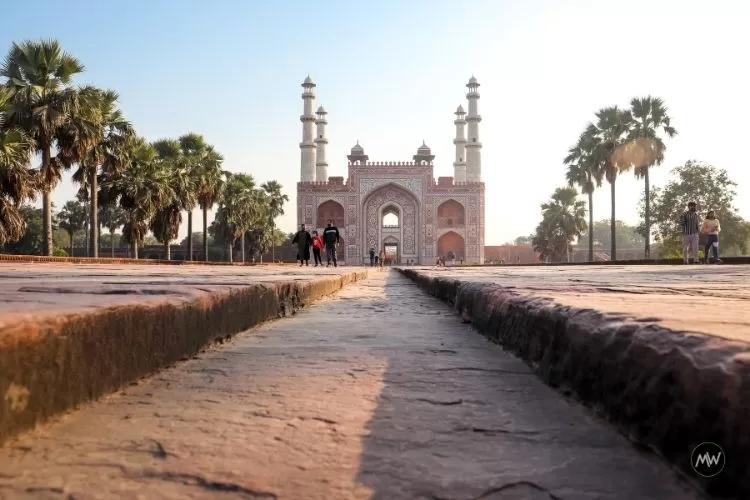
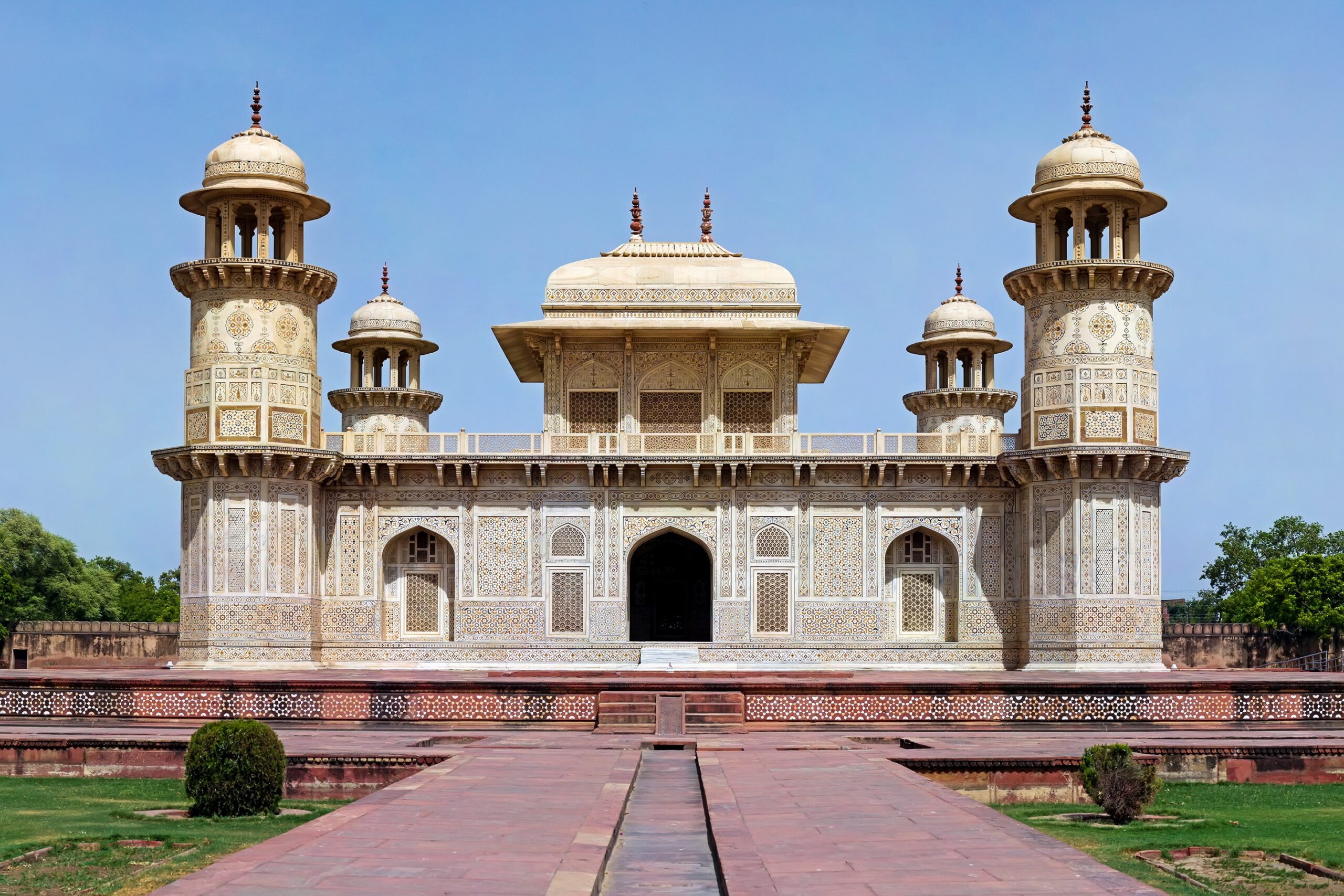
Tomb of I’timād-ud-Daulah is a Mughal mausoleum in the city of Agra in the Indian state of Uttar Pradesh. Often described as a “jewel box”, sometimes called the “Bachcha Taj” or the “Baby Taj”, the tomb of I’timād-ud-Daulah is often regarded as a draft of the Taj Mahal. Along with the main building, the structure consists of numerous outbuildings and gardens. The tomb, built between 1622 and 1628, represents a transition between the first phase of monumental Mughal architecture – primarily built from red sandstone with marble decorations, as in Humayun’s Tomb in Delhi and Akbar’s tomb in Sikandra – to its second phase, based on white marble and pietra dura inlay, most elegantly realized in the Taj Mahal.
About Jaipur
Hawa Mahal, literally the Palace of Winds, was built in 1799 by the poet king Sawai Pratap Singh as a summer retreat for him and his family. It also served as a place where the ladies of the royal household could observe everyday life without being seen themselves. This unique five-storey structure is a blend of Hindu and Islamic architecture, and the exterior, with its small latticed windows (called jharokhas), resembles the crown of Lord Krishna. The windows also serve as an air-conditioner of sorts, blowing cool air throughout the palace, making it the perfect retreat during summers. Built from pink sandstone, the Hawa Mahal is Jaipur’s iconic landmark and visitors can view its complete magnificence from outside, from across the road. However, it is also possible to climb right up to the top for a wonderful view from the windows. Today, the Mahal is maintained by the Archaeological Department of the Government of Rajasthan and also houses an archaeological museum in the courtyard.
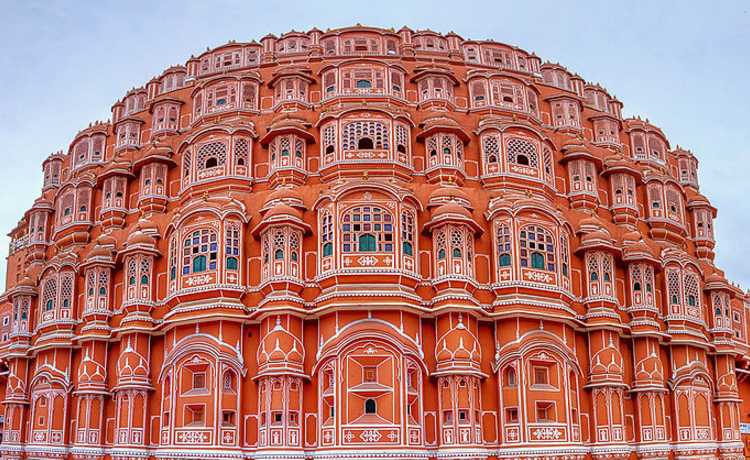
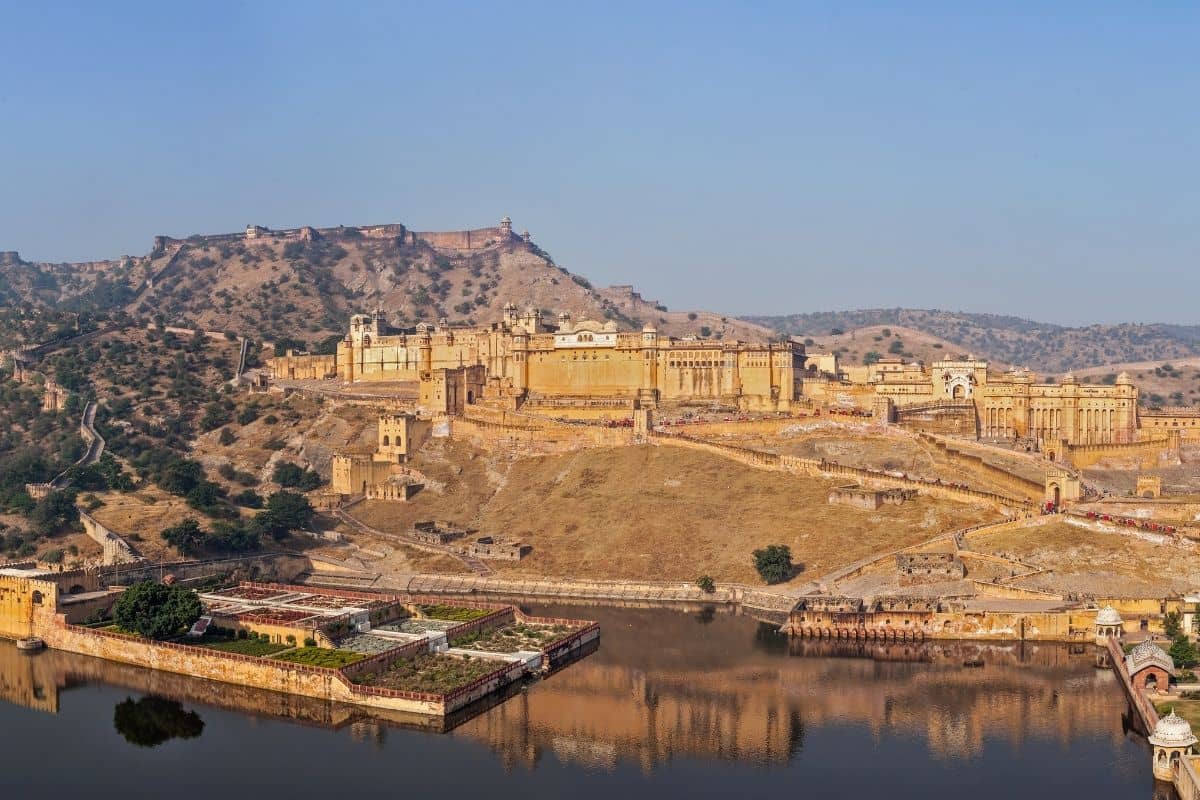
Amber (pronounced Amer) is at a distance of about 11 kilometres from Jaipur. Now a UNESCO World Heritage Site, it was the bastion of the Kachwahas of Amber, until the capital was moved to the plains, to what is today Jaipur. The palace, located in craggy hills, is a beautiful melange of Hindu and Mughal styles. Raja Man Singh I began construction in 1592 and the palace, which was built as a strong, safe haven against attacking enemies, was completed by Mirja Raja Jai Singh. The contrast between the harsh exterior and the inviting interior couldn’t be more surprising. Made entirely of red sandstone and white marble, visitors are left spellbound by the magnificence of the palace that utilises carvings, precious stones and mirrors. The splendour of the palace is enhanced by the breath-taking vista of the Maota Lake in front. The palace is nearly seven centuries old and has a legendary past. Originally a small structure that the Rajputs won from the Meena tribes, it was later transformed into the grand Amber Palace
Located deep within the walled city, the City Palace Complex was conceived and built by Maharaja Sawai Jai Singh II, the founder of Jaipur. A beautiful fusion of Mughal and Rajput architecture, the palace is still home to the last ruling royal family which lives in a private section of the palace. Maharaja Sawai Jai Singh II is credited with building most of the structures, but it was expanded upon by later rulers as well. The City Palace Complex includes the Mubarak Mahal (the palace of reception) and the Maharani’s Palace (the palace of the queen). Mubarak Mahal now houses the Maharaja Sawai Man Singh II Museum and displays a vast and unique collection of royal costumes, delicate Pashmina (Kashmiri) shawls, Benaras silk saris, and other dresses with Sanganeri prints and folk embroidery. The clothes of Maharaja Sawai Madho Singh I are also on display.

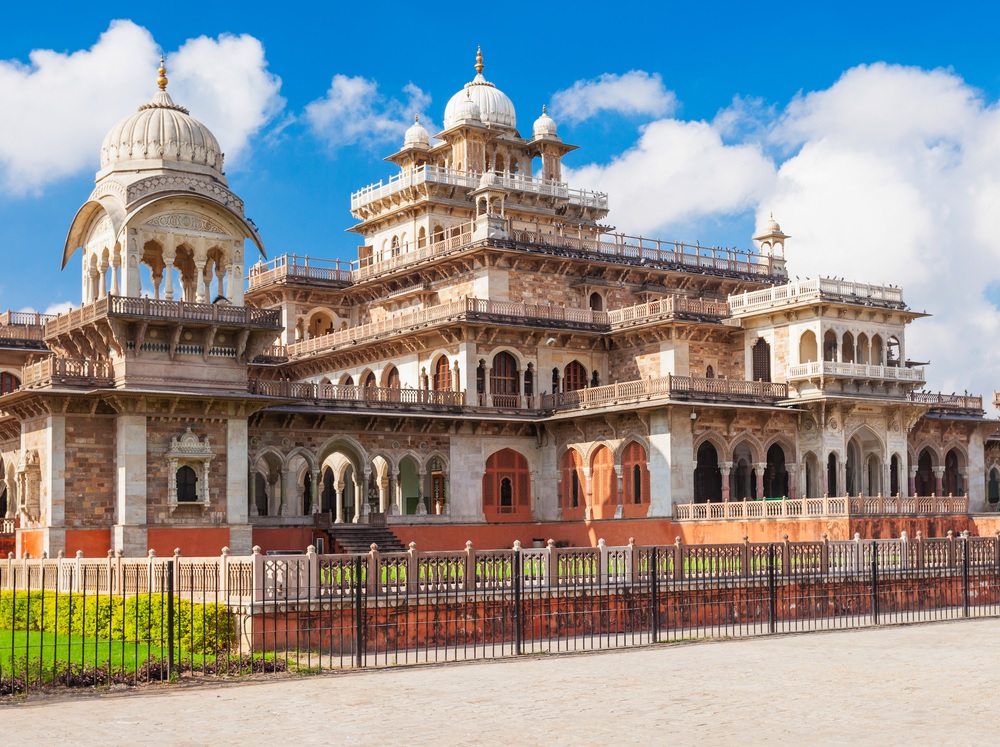
The building gets its name from The Victoria and Albert Museum in London, the inspiration for its design. The exquisitely built Albert Hall is housed in the centre of Ram Niwas Garden. Sir Swinton Jacob (who is also the mastermind behind many other palaces in Rajasthan) conceptualised and designed it using styles from the Indo-Sarcenic architecture and the Prince of Wales laid the foundation stone of the building in 1876. The museum displays a wide range of metal objects, wood crafts, carpets, stone and metal sculptures, arms and weapons, natural stones and ivory goods. It also houses a large collection of miniatures from Bundi, Kota, Kishangarh, Udaipur.
Day 1
IN MARKET AGRA ON FOOT 1730 TO 19.30
Day 2
AMBER KA QUILA 16.00 HRS
BACK HOTEL 19.00
Day 3
3 HRS REACH DELH
Approx. 900 Km. with Accomodation.
Inclusive
Only cabs and tempo
Exclusive
if you do not find what you are looking for submit a request and we shall send you special package rate for your request

Rozana Travels is a Delhi based car hire/Taxi Services company which provides a magnificent range of vehicles to its users.
© 2022 CarLane. All rights reserved.
Designed and Developed by Easy Solution 360